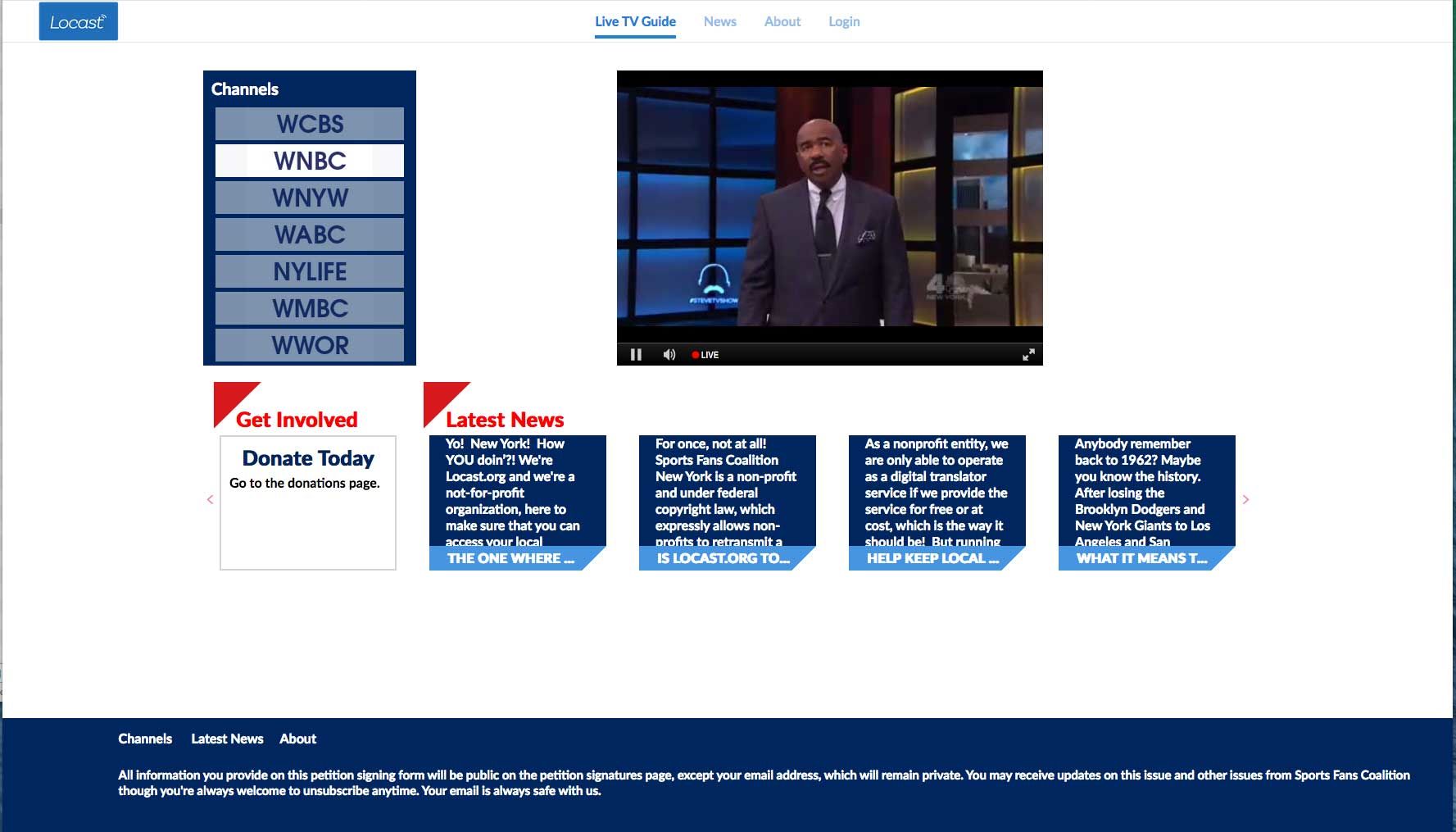Locast’s OTT Expansion Rolls On

The smarter way to stay on top of broadcasting and cable industry. Sign up below
You are now subscribed
Your newsletter sign-up was successful
WHY THIS MATTERS: Locast is continuing its over-the-top push into more local markets with little pushback from broadcasters.
The Locast model of streaming TV stations for free over the internet continues to expand unchecked by any pushback from broadcasters or TV studios, B&C has learned.
Locast has added two more markets, according to David Goodfriend, who has been motor-manning the effort.
Denver was added last week and Chicago Sept. 13. That brings the total to five markets — it launched earlier this year in New York, then added Dallas and Houston.
But B&C has also learned that it plans soon to add two more top 10 markets, Philadelphia and Boston, according to a source familiar with the operation, pushing it to six of the top 10 TV markets in the country.
Locast takes advantage of a provision in copyright law that allows for the nonprofit retransmission of TV station signals without permission from the stations or the copyright holders of the content. It is the same provision that allows for translators to boost broadcast signals in hard-to-reach areas.
Broadcasters and studios have remained mum on the service, either trying to figure out what their legal strategy should be, given that copyright carve-out for the same translators used to extend TV stations’ reach and advertising eyeballs, or, as various sources have also suggested, due to a split between network-owned and non-network-owned stations.
The smarter way to stay on top of broadcasting and cable industry. Sign up below
That split could be because networks have been striking deals to deliver their programming over-the-top over various online platforms without the local ad avails that broadcasters get to place in that network programming.
Getting those extra Locast eyeballs for their broadcasts might not be such a bad thing.
Locast launched in January in New York without permission from the more than a dozen TV stations, including ones owned by the Big Four networks, it offered for free — though it asked users for a contribution to cover expenses.
Locast has hitched its wagon to Title 17, Chapter 1, section 111 (a)(5) of the Copyright Act. That covers exemptions from exclusive rights to broadcast transmissions, rights that stations and their studio content partners usually guard jealously (as they did in submarining Aereo, a subscription service that was shuttered in 2014 after broadcasters and studios sued in federal court).
Nonprofit Loophole
That section grants that copyright exemption if “the secondary transmission is not made by a cable system but is made by a governmental body, or other nonprofit organization, without any purpose of direct or indirect commercial advantage, and without charge to the recipients of the secondary transmission other than assessments necessary to defray the actual and reasonable costs of maintaining and operating the secondary transmission service.”
Locast is the brainchild of lobbyist and Sports Fans Coalition founder David Goodfriend, who plans to continue expanding the service, he told B&C.
If broadcasters, studios or sports leagues do balk — perhaps if Locast becomes a workaround during a high-profile carriage impasse — Goodfriend will have to demonstrate that Locast is a nonprofit and gets no direct commercial advantage from the retransmissions, and that the statute indeed allows for over-the-top as well as over-the-air retransmissions.
Locast’s service is geo-fenced, which means it will not be available outside the relevant markets and thus does not run into contractual exclusivity issues.
So far, it hasn’t run into any pushback from those whose business model it presumably threatens.
But the service may also be expanding to Washington, or at least Goodfriend would like to see it up and running there. That could prompt some pushback, since it is in the backyard (and front yard) of the relevant associations, the National Association of Broadcasters and the Motion Picture Association of America.
The NAB initially responded to Locast’s launch by likening it to Aereo and FilmOn, two over-the-top services that had tried and failed to find “creative ways” to skirt laws that protect local broadcasters and their viewers, but were shot down or brought up short by the court.
The NAB said at the time that without more details, Locast sounded like the same kind of thing, bu broadcasters are keeping their legal powder dry so far as the service continues to push the frontiers of broadcast OTT.
Contributing editor John Eggerton has been an editor and/or writer on media regulation, legislation and policy for over four decades, including covering the FCC, FTC, Congress, the major media trade associations, and the federal courts. In addition to Multichannel News and Broadcasting + Cable, his work has appeared in Radio World, TV Technology, TV Fax, This Week in Consumer Electronics, Variety and the Encyclopedia Britannica.

